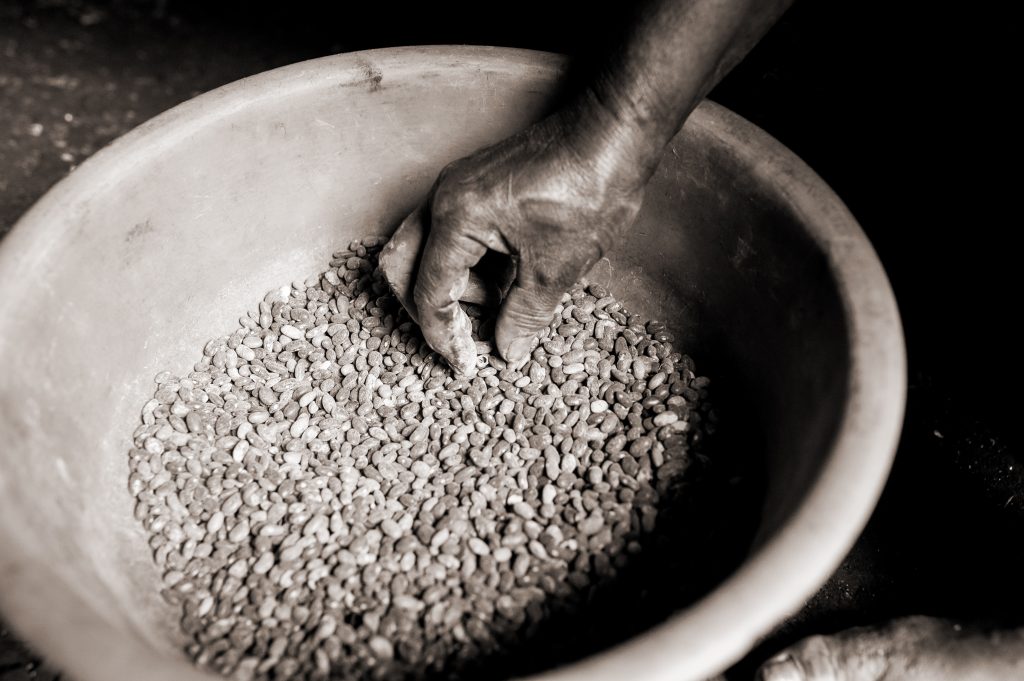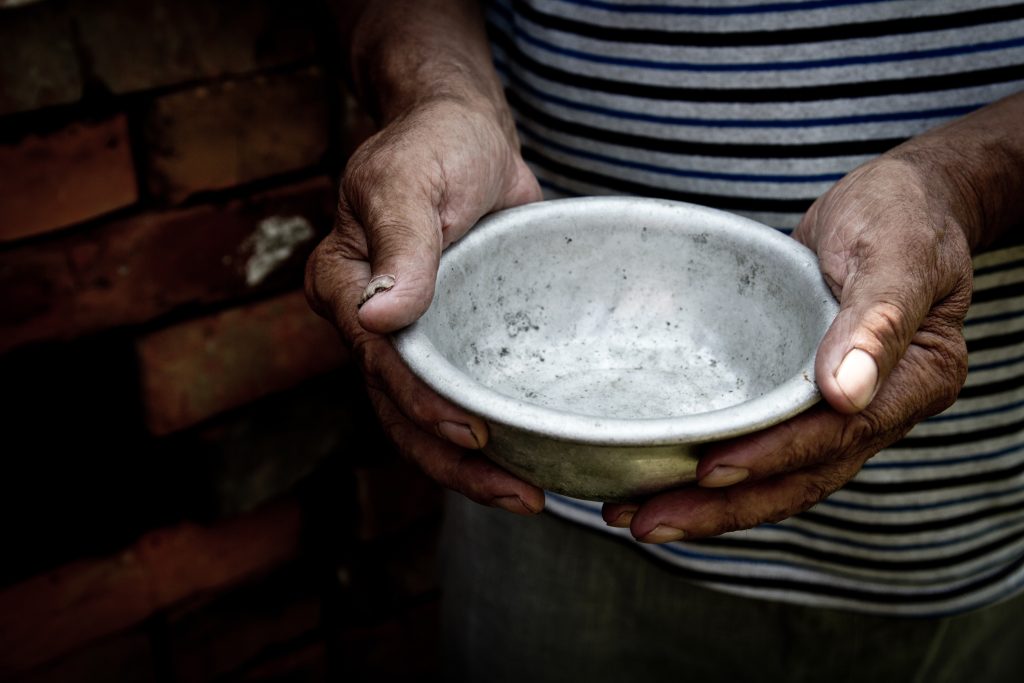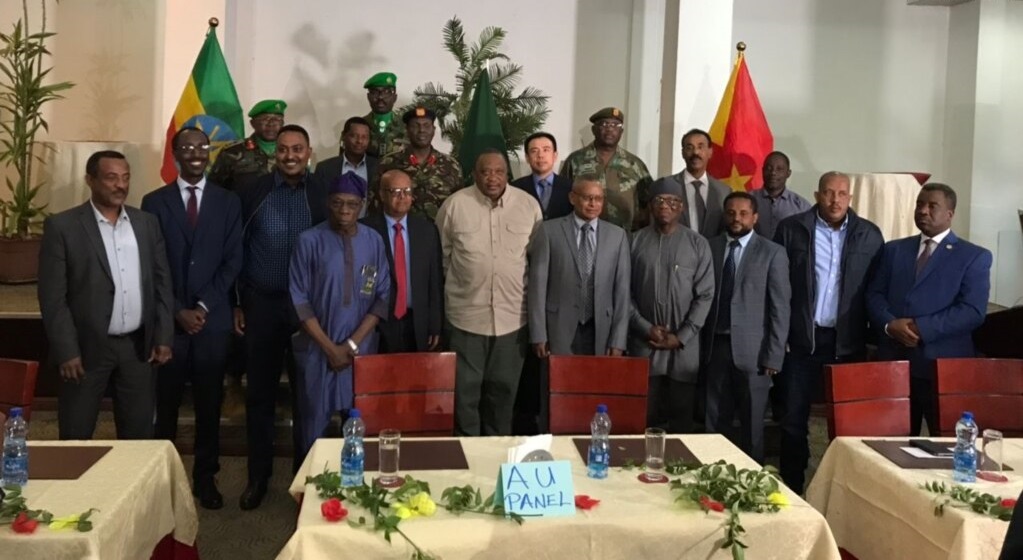by Saba Araya, Kiros Teklay and Saba Mah’derom
As the war in Ethiopia expands and gets closer to the capital city, we are living in fear. We fear for ourselves, our families, our neighbors, and our country.
With every passing week, the situation of Tigrayan civilians in Addis Ababa and across Ethiopia has become progressively more desperate. As well as physical violence and dispossession, there is the real terror of threats of mass violence against ordinary citizens. Seemingly with impunity, social media users based within the country and abroad call for targeting of Tigrayans, purely because of their identity. Such hateful and dangerous rhetoric against Tigrayans started surfacing on social media even before the political standoff that spilled into armed conflict, but has become much more belligerent in the wake of the armed conflict. More recently, this rhetoric has progressed from just hateful content to open calls for mass detentions and violence against all Tigrayan civilians.
No Tigrayan is safe and no place is safe for Tigrayans.
In Addis Ababa and across Ethiopia, Tigrayans are now being hunted down from their homes, workplaces and public spaces and kept in concentration camps. There are cases of individuals are extrajudicially executed in cities including Addis Ababa, Gondar, Bahir Dar, Dessie and elsewhere. No Tigrayan is safe and no place is safe for Tigrayans. Essentially, Tigrayan identity has itself become a crime in Ethiopia and security officers as well as vigilantes fully sanctioned by regional and federal administrations, have acquired even more sweeping powers under the state of emergency, to arrest and abuse any Tigrayan.
Who are these Tigrayans who have been ensnared in these arbitrary mass detentions? It is men, women, the elderly, children and religious leaders who have no political affiliations and no role in the current conflict. It is fathers and mothers who want nothing more than to raise their children, it is young men and women who want nothing more than to work towards a bright future, and it is religious leaders who want nothing more than to worship God and lead their flock. It is Tigrayans who, like any other Ethiopian, want nothing more than to live in peace.
For the sake of maintaining the social fabric that protects human beings, and holds a country together, Tigrayans require protection. Those who see the unjustness of criminalizing an identity must step up.
History is replete with stories of courageous men and women who, even at great danger to themselves, protected innocent people when the state failed to protect or openly persecuted its own citizens. From Englishman Nicholas Winton who saved over 600 Jewish children in Nazi Germany to Rwandan Zura Karuhimbi who saved Tutsis in her tiny hut during the Rwandan genocide, history teaches us that in times of extreme hate and cruelty, there are those who protect the innocent, exemplifying the best of humanity.
During times of such extreme cruelty being committed by one’s own side against what one considers the “other”, some good Samaritans find a way of connecting to a higher humanity. They manage to be true to what is always the right thing to do and resolve to the highest of all high moral obligations which can best be summarized as: “I am my brother’s keeper.” Such people have existed, they exist and will continue to exist.

Ethiopia, a land of people from more than 80 different ethnic groups and 86 different languages spoken has been in a civil war for one year now. During this time, there have been mass destruction, displacement, massacres, systematic rape, and crippling of the economy. The country has become a cockpit for countries to play geopolitics and test the effectiveness of military equipment. It is a shocking turn of events to see the same country that was being praised for economic growth sink this low.
Beyond these devastations, however, the social fabric essential to keeping together such a diverse populace is in danger of being ruptured beyond repair. Since the beginning of the war, there have been people at two opposite ends. There seems to be no in-betweens. Or if there are, they have been shot down as traitors. They are shamed and often derogatorily labelled as “middle settlers” or “fence sitters” by one or both sides. Such labels have been deployed by influential people whose words carry great weight like the Deputy Director-General of Ethiopian Media Authority, Yonatan Regassa.
All of that polarization is now being used as a tool by the government to turn neighbors against each other, to escalate the war further, come what may. In order to galvanize support for the war, people are deliberately invoking past injustices as emotional extortion to prevent the public from rising above the heat of animosity or to look beyond the political actors. Neighbors who have lived together in peace for years, who have relied on each other through good times and bad as is wont in communal societies all over the world are now called on to report on each other. “No Tigrayan is to be trusted.” they are told. As a result, non-Tigrayans have resolved or are cowing to coercion to report their Tigrayan neighbors or contacts to authorities. Today, hundreds of thousands of Tigrayans are being rounded up en masse. All the warning signs for mass collective violence are flashing red.
But, history has shown that human beings can rise above the repression and incitement to hatred, can resist mass hysteria, and overcome fear to deliver profiles in courage. In today’s Ethiopia, we look to find such figures.
But, what can the regular civilian do? And why should they do it?
At a pro-war rally, held on November 7 in Addis Ababa, the well-known Ethiopian singer Tariku Gankisi, whose nationalistic song has been widely used to rally support for the war and military recruitment, bravely listened to his conscience. He refused to sing. Instead he spoke out against the war and called for peace saying: “Let no youth go to the front lines to fight, let the elders go holding the fresh grass and ask for reconciliation.” (Holding grass is a traditional gesture of peace.) He went to share his past experience before the organizers of the rally shut off his microphone.
When one thinks of what to do and why, the human person assesses short and long-term consequences and benefits. To stand in opposition to the current toxic political climate created by the government and its supporters to report Tigrayans can mean danger to those who shun the government calls for taking on the responsibility of standing guard against the “enemy”. To take a stand for humanity requires listening to the inner voice of conscience. It takes courage and determination. Those virtues can be unlocked when a person looks into the future and contemplates a vision of the utter catastrophe that will be unleashed if things are allowed to run their current course. Tariku seemed to have this voice and vision. Doubtless others do as well.
It is such people who understand the incalculable consequences of the tragedy that is looming. It is yet another tragedy for the people who will suffer and perish. It is a tragedy for the Ethiopian body politic, as the wounds will be inflicted on those precious but intangible bonds that hold together any country, especially one as complex and yet fragile as Ethiopia. Governments will pass, laws will change, the dust will settle, but for sure the acts of betrayal that are being fomented by calls for regular citizens to do harm to their fellow citizens will sow seeds of bitterness and resentment in individual hearts and collective memories that will last generations.
The suffering today and the escalation of rhetoric that portends even greater suffering tomorrow, in every part Ethiopia demands that citizens listen to the voice of conscience and follow the principle of common humanity. To choose humanity demands courage. But if enough people on all sides do so, there can be a future of peace and living together. If one hopes for a better tomorrow, one has to shut out voices of division, suspicion and paranoia, denounce injustices anywhere it occurs and shield the most vulnerable.
Saba Araya is based in the U.S, involved in TigraiHub advocacy group and has written multiple reflections on her medium.
Saba Mah’derom is a masters student based in the U.S and a board member for Women of Tigray.
Kiros Teklay is a PhD student in the U.S. and has been leading advocacy campaigns for TigraiHub.
Photo: Ethiopia, Steve Evans, Flickr (CC BY-NC 2.0)



